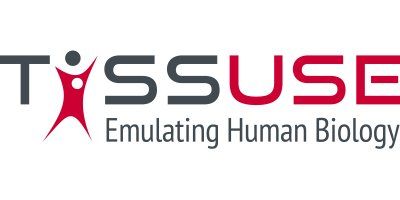

- Home
- Companies
- TissUse GmbH
- News
- Philip Morris International and TissUse ...
Philip Morris International and TissUse develop a human aerosol test platform to emulate the entire human respiratory tract
PMI and TissUse have signed a collaboration agreement to utilize PMI’s InHALES technology in combination with TissUse’s proprietary Multi-Organ-Chip (MOC) platform to enable inhalation exposure of functional human tissues in homeostasis at minute scale in vitro.
The two partners will develop a highly innovative integrated human aerosol test platform that emulates the entire human respiratory tract with regard to dimension and architecture. PMI has established a platform that perfectly matches the architecture and characteristics of the human respiratory tract (InHALES). TissUse has established the widely used HUMIMIC Multi-Organ-Chip (MOC) platform, which enables functional human tissue response in vitro. A plug&play interface between the two technologies will allow physiologically relevant exposure to complex aerosols in the background of an in vivo-like organization and breathing performance of the human lungs. The novel integrated HUMIMIC–InHALES test platform will allow acute and subchronic tests on lung models in combination with miniaturized human liver equivalents, enabling assessment of local effects on the biological barrier of lung epithelia, penetration of substances into blood circulation, and eventual systemic effects. Altogether, HUMIMIC–InHALES will provide a highly predictive model for assessing respiratory toxicity and systemic human effects of inhaled aerosols and their constituents, such as environmental toxins, smoke particles, airborne pathogens, and inhalable medications.
“The agreement meets PMI’s ambitions to extend its competence in aerosol applications to the development of new methods for exploratory research and translational sciences, which will not only help advance the research & development of PMI products but also broadly support biomedical research beyond PMI’s core business.” explains Dr. Julia Hoeng, Global Head Discovery, Philip Morris International.
“This agreement synergizes the complementary ideas, know-how and experience of both companies. We are very much looking forward to enhancing TissUse’s highly innovative product and assay portfolio through this collaboration.” explains Dr. Reyk Horland, CEO of TissUse.
Technical and financial details of the collaboration were not disclosed.
About the Multi-Organ-Chip (MOC) technology
TissUse’s proprietary commercial MOC technology platform is a microfluidic microphysiological system capable of maintaining and culturing miniaturized organ equivalents that can emulate the biological function of their respective full-size counterparts over long periods. The system incorporates major features of living biology, such as pulsatile fluid flow, mechanical and electrical coupling, and physiological tissue-to-fluid and tissue-to-tissue ratios. This supports the development of a large variety of substance assays, ranging from acute and repeated dose toxicity assays to long-term disease treatment (efficacy assays). The technology allows flexible and customized combination of different tissue constructs or organ equivalents on a disposable chip-based microphysiological system. The number of organ equivalents supported by the platform ranges from a single organ culture up to an organ number that can support the study of complex organ interactions. The first commercially available platforms support single-, two-, three-, and four-organ cultures. Examples of organ models available at TissUse include the liver, intestine, skin, vasculature, neuronal tissue, cardiac tissue, cartilage, pancreas, kidney, thyroid, hair follicle, lung tissue, fatty tissue, tumor models, and bone marrow. Further organ models are being developed. The platform further comprises HUMIMIC Starter devices that operate up to four MOCs simultaneously. These units provide the flexibility needed for controlling and monitoring any on-chip organ arrangement.
